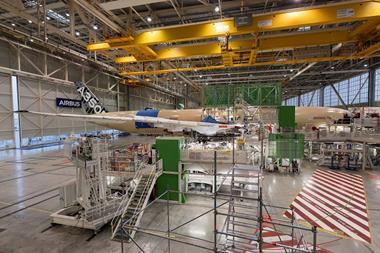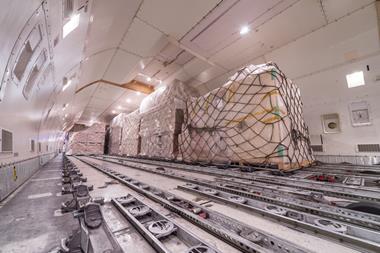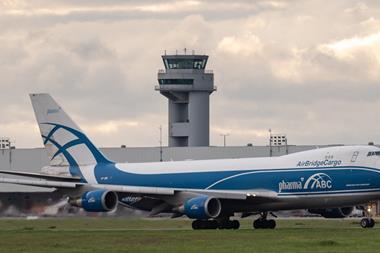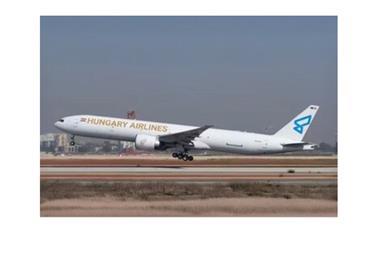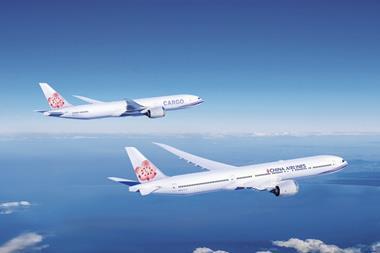Giving the opening address to more than 1,200 delegates attending the World Cargo Alliance (WCA) Conference held at the Abu Dhabi National Exhibition between 10-13 March, Etihad Airways president and CEO James Hogan offered his thoughts on the past successes and future direction of the UAE flag-carrier’s freight operations.
Etihad Cargo contributes over US$1 billion in annual revenue to the airline group, and it is continuing to grow its footprint. During 2015, it carried 592,090 tonnes of freight and mail, accounting for 88% of all imports, exports and transfer cargo passing through Abu Dhabi International Airport last year. Etihad Cargo’s volumes were up last year by 4% on 2014 and there is no sign of the upward trend slowing.
Part of that growth is down to an expanding fleet dedicated to cargo operations. Currently, the carrier operates a freighter fleet of four Boeing 777s, three Boeing 747s and four Airbus A330s. An additional Boeing 777 freighter is due to arrive this month (March), while another Airbus A330 freighter is scheduled for delivery in 2017.
Also helping the process of Etihad Cargo’s expansion has been the ongoing boom in the Middle East’s international trading role. The Middle East region continues to outperform other markets in terms of international air freight shipping, Hogan pointed out, with its geographical importance only growing as traffic shifts from traditional and established markets to emerging commercial centres in the Middle East, Asia, South America and Africa.
“Our hub of Abu Dhabi is at the crossroads of the world, and as a combination carrier, Etihad Airways is perfectly positioned to capitalise on the growing passenger traffic, and the increasing volumes of cargo and goods transported between expanding and emerging markets,” Hogan explained.
The future, then, is bright. “Etihad Cargo has grown into a billion- dollar business,” he remarked. Noting the carrier’s partnership with other freight operators including Jet Airways Cargo, Air Seychelles Cargo, airberlin Cargo, Air Serbia and Alitalia, he observed: “By working with our partners, we will continue to maximise the profitability of each carrier by combining resources, networks and capabilities for the benefit of all of our customers.” Partnerships with other freighter operators, including Atlas Air and Avianca, also provide strong support to the main Etihad operation, Hogan said, and the division is continuing to explore opportunities for co-operation with like-minded cargo operators.
Etihad Cargo currently operates to 14 freighter-only destinations, including Bogotá, Brazzaville, Chittagong, Djibouti, Dubai World Central (DWC), Eldoret, Guangzhou, Hanoi, Houston, Sharjah and Tbilisi. It also has access to the extensive bellyhold capacity of the Abu Dhabi-based carrier’s passenger fleet.






